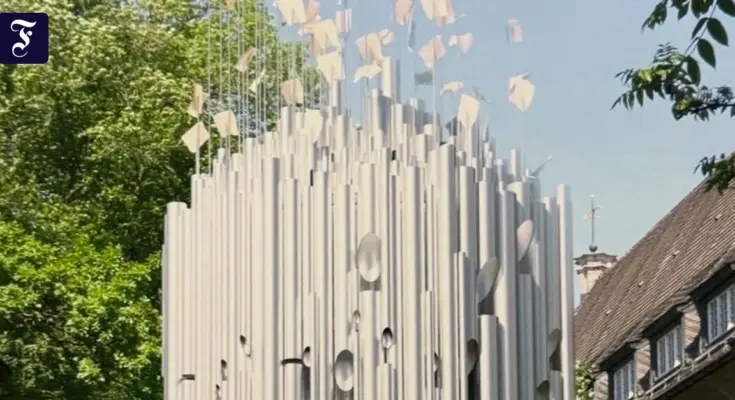In 1943, members of the “White Rose” stored about 2,000 leaflets in the organ room of Martin Luther Church in Ulm and prepared them for distribution. Hans Hirzel, who as assistant organist at Luther’s Church had the key to the room inside the organ, and his sister Susanne then put the flyer in the mailbox at night. The history of the city of Ulm is closely related to the history of resistance groups. Sophie and Hans Scholl’s parents lived in Ulm, and the Nazis imprisoned the Scholl family there.
Baden-Württemberg state lawmaker Martin Rivoir (SPD) has campaigned for years to create a memorial site near the church. In the organ room, an ancient exhibition commemorates the “White Rose” resistance struggle. Because the space is so small, the city of Ulm, motivated by Rivoir’s commitment, now wants to create a new memorial outside the church. The authentic places where the “White Rose” is remembered can only be found in the atrium of the Ludwig Maximilians University in Munich and at the Munich Ostbahnhof.
1.5 million euros available
To promote the project, Rivoir founded the association “Lernort Weiße Rose Ulm”. This new learning location is intended to increase awareness of historical events through an eye-catching building. This week, Ulm’s city building committee approved a competition commission proposal to build a design by Munich office Brunner/Ritz on the northeast side of the church: the outer facade should form the shape of a symbolic organ pipe on which leaflets would be attached. The inside of the rotunda should have room for one school class or about 30 visitors. This new multimedia exhibition will be developed by specialist historians from Ludwig Maximilians University.
At the urging of Bundestag member Martin Gerster (SPD), the Bundestag budget committee provided 1.5 million euros for the construction of a new learning center. Construction should be completed by 2027, but no later than the garden show in Ulm in 2030. “The call in the leaflet to throw off the cloak of indifference and the sentence that Germany only has a future in a European federal state still impress me today,” Rivoir said.


